Anna's Blog
VOLPONE was the smash hit of the season when The Plague engulfed London in 1606. Mid run, the aptly named The Theatre was forced to close - despite packed houses – and with it went Jonson’s masterpiece. 400 years on, our own sell-out tour of VOLPONE was ironically curtailed due to a modern reincarnation of this crisis – COVID-19. I’m sad for the talented people involved in the making of our show. I’m also sad for our industry. 2020 has become a time of real hardship.
Like everyone else I’ve watched our sector reaching out in response to COVID-19. At Tangle we’re working hard to develop new projects and offer guidance and support to artists where we can. We’ve also been thinking about the changes we would like to see.
Don’t dictate – collaborate
At Tangle we make theatre in a collaborative way. Our projects begin through consultation - with both the artists that make them and the communities that experience them. Our African, township-style adaptations of Renaissance classics demonstrate an incredible dynamism in the art form. They also afford important opportunities for global creative expression and for role modelling. Sadly, there are still relatively few openings in mainstream theatre for artists of colour to engage with classical material in this way. Some casting decisions are made – let’s be honest - in order to tick a ‘diversity’ box rather than through a genuine passion for representation. At Tangle, productions grow from a collective vision. Our core company value is UBUNTU – an Xhosa word literally meaning ‘I am, because you are.’ I would like to see more institutions consult, collaborate and celebrate the rich range of individualities, heritages, languages and skills that artists offer. Industry leaders especially, should look to originate work that starts from the perspective of the artists, rather than being made in a ‘top down’ way. And we should all stop trying to squeeze people into a particular size of box just because it suits us to do so (my friend Tarek Iskander recently pointed out that ‘it is just this kind of inflexibility that makes us perform so poorly in terms of inclusion’).
One size does not fit all
In the midst of this global crisis, artists matter more than ever. Whatever your background, heritage or social status, there will be a role for you to play in carving out a future for theatre. Whether, at the moment, your priority is to find a job, to seek shelter and food, or to write the play you’ve always wanted to write, you matter. We all count and we all have a voice.
At Tangle, our door is always open if you need a chat or a bit of support. We’ll do what we can.
Whatever you do, or dream you can do, begin it.
Boldness has genius, power and magic in it.
Begin it.
Begin it now.
Don’t feel small. Walk tall.
A persistent failure of our industry is to align ‘excellence’ to the size of the budget and the scale of the show. A large-scale show in a ‘status’ theatre can be wonderful, but it is not always a guarantee of quality. A director’s ability to manage a company of 100 is not necessarily more challenging than touring VOLPONE – which has over 40 parts – with a cast of just 3 across the rural landscape of South West England. ‘Big’ work is not necessarily the ‘best’ work (although it can be). There are similar issues in casting and recruitment – a ‘status’ CV does not always indicate the most potent aptitude. Small can be sweeter. Untested talent can be better. South Africa’s township theatre is one of the arts’ most powerful global movements. It came from small beginnings. The plays - often performed in community halls with minimal sets and tech – have a huge voice today. They remain some of the greatest in the world. The grass roots, bespoke approach to theatre making epitomised in the township era should have powerful currency here and now. Every show, regardless of its size, has the potential to be a game changer. Every artist has an important contribution to make, regardless of their status, background, heritage and history.
Be economically responsible
I have long been an advocate of generating alternative income streams. Yet so many of us feel we are not taken seriously as artists if we do other jobs as well as theatre making (I should know - I have several). This is misguided. Across the country, millions are struggling to make ends meet. With the imminent collapse of global markets, it may soon be impossible to sustain a full-time career in the arts all together. Having another trade will therefore become essential to the vast majority of creative practitioners. There’s another benefit – having a diversity of skills affords artists a wider window on the world. The most exciting of our current theatre leaders have come from working in other industries. It is they who are already in the engine room, driving forward the future of live performance. In 2016 I worked with Zimbabwean writer Cont Mhlanga on WORKSHOP NEGATIVE, a play created directly from his own experience of working in a tool making factory in Bulawayo. WORKSHOP NEGATIVE remains the most iconic expression of race and class in contemporary Zimbabwean theatre. It may not have been written if Cont had not had that factory job. Writers of the European Renaissance also had trades (Ben Jonson was the step son of a bricklayer). Such experiences do not only provide financial reward; they can fuel creative processes, broaden social outlooks and reach audiences who might not otherwise engage.


